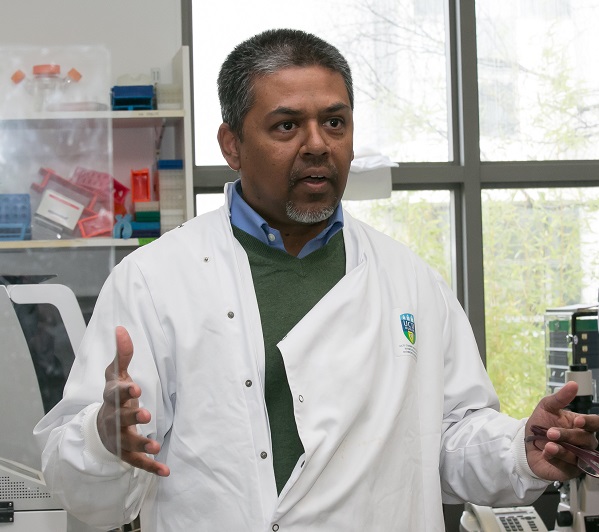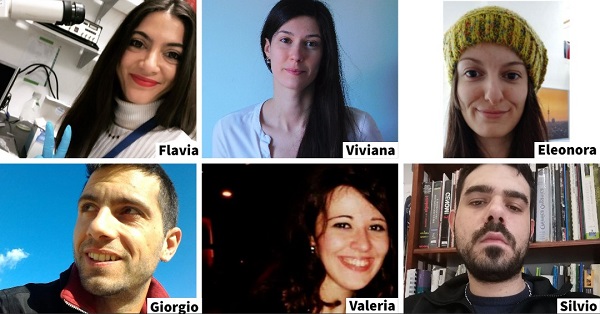Debunking scientific misinformation during a pandemic
Advances in technology coupled with a culture of collaboration and open access among the scientific community is facilitating great strides in understanding the Coronavirus and enabling rapid responses to this global pandemic.
One of the more concerning aspects of the rapid rise in social media over the past decade is the extent of misinformation being circulated and amplified. It can be difficult to pinpoint real expert opinion amid the noise of fake news.
Emerging scientific data needs to be interpreted correctly and shared in a format that is easily understood by journalists, politicians and the general public. Some Institute researchers are using their knowledge and expertise to provide insights on Coronavirus in plain language and debunk the misinformation circulating on social media.
Dr Arman Rahman is Translational Research and Engagement Manager in Precision Oncology Ireland, a national consortium led by Systems Biology Ireland. Originally from Bangladesh, Arman is a medical doctor (MD) who went on to complete his doctoral research training in Sweden.
“I have been using my scientific expertise to comment on the Coronavirus through interviews on Bangladeshi online news portals and on social media especially Facebook. My main task is to act as an interpreter of published scientific findings on Coronavirus and simplify the information in our native language. There is widespread misinformation, rumour and religious bigotry about Coronavirus infection.”  Pictured: Dr Arman Rahman
Pictured: Dr Arman Rahman
In one of the daily White House press briefings in mid-March, President Donald Trump announced that an antimalarial drug, chloroquine is shown “very encouraging early results” in treating COVID-19 and would be rolled out “almost immediately” to help fight the growing coronavirus outbreak despite not yet having FDA approval.
“Bangladeshi people are eating black seeds day and night since Trump’s announcement believing that this natural source of chloroquine to be effective against Coronavirus infection. Research studies published in reputable scientific journals are not readily available for clinicians and researchers in Bangladesh. I have supplied copies of published research papers to several clinicians, researchers and key decision-makers in the Bangladesh Government.
I have attended many Facebook live events where the general public could ask questions about Coronavirus. It was a great experience connecting with these people and being able to answer their queries.”
Flavia Messina is an Italian PhD student in the laboratory of Professor Breandan Kennedy. Flavia has degree in molecular biology from the University of Rome ‘Tor Vergata’ and is now doing research on ocular pharmacology and genetics in UCD Conway Institute.
Flavia and five of her Italian colleagues set up a Facebook group page called Coronavirus - Scientific Data and Analysis, which has more than 76,000 followers along with associated YouTube and Telegram channels (@DatiAnalisiCoronavirus).
Between them, they have degrees in physics, astrophysics, industrial chemistry, genetics, molecular biology and infectious diseases. Since the beginning of the Coronavirus emergency, these scientists have been providing an information service based on the analysis of scientific articles and data. Their aim is to communicate in a clear and comprehensible manner about the evolving situation that they are experiencing.
Commenting on the initiative, Flavia said, “Our commitment comes firstly from the need to make a personal contribution at this delicate moment; making available the skills that arise from our background of scientific studies together with the passion for communication in this area.”
One example is a YouTube video entitled Coronavirus emergency: a message from Italy, in which one of the team outlines some key messages of advice to other countries based on the Italian experience of the disease.
Using scientific data and analysis, they recommend countries increase numbers of ICU beds; advocate for a rapid and total lockdown based on the comparison of outcomes between China and Italy; and encourage the isolation of asymptomatic people to control the spread of the disease.
The findings of a study by the University of Padua are explained in which the entire population in Vò were tested for Covid-19. The small village in northern Italy recorded the first death in the country from the virus and is home to 3300 people. Although the majority of people tested positive for the virus, they were displaying none of the symptoms of the disease (asymptomatic) and yet could spread the virus.  Pictured: Top row (left-right) Flavia Messina, Viviana Couto Sayalero, Eleonora Fiorellino. Bottom row (left-right) Giorgio Sestili, Valeria Persichetti, Dr Silvio Paone
Pictured: Top row (left-right) Flavia Messina, Viviana Couto Sayalero, Eleonora Fiorellino. Bottom row (left-right) Giorgio Sestili, Valeria Persichetti, Dr Silvio Paone
Social Media Links